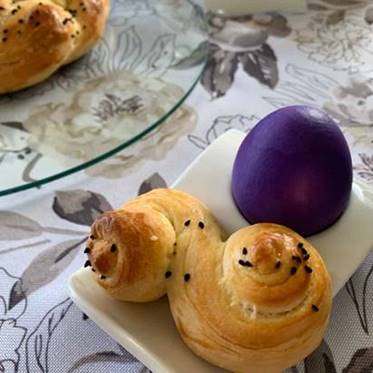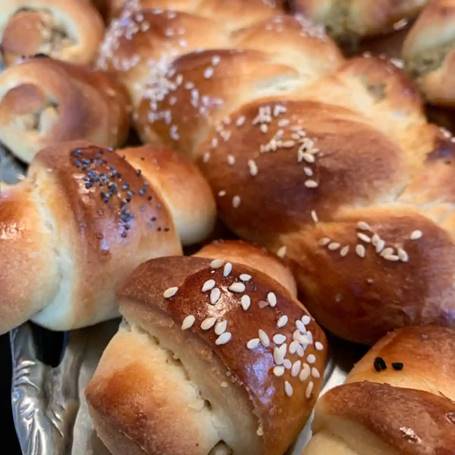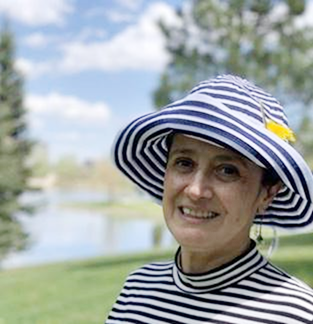“As a young girl I would make this chorek/choreg recipe with my dear mother. She would give us a small piece of dough and we would shape it into flowers, letters, birds or some abstract figures. My mom would make the braids and roulades filled with walnuts or apricot preserves, sprinkled with poppy or sesame seeds,” says Noune Jihanian, the talented Armenian blogger at Cafe Osharak. “My aunt Victoria makes chorek and gives it away as a gift for Easter. This recipe was passed down, and now I am here to share it. The aroma of the baked chorek was sweet and enticing, lingering in our kitchen for days. It penetrated into all the nooks and crannies of my senses and became engraved in my memory.”
“What makes chorek so memorable is the unique spice called mahleb. It gives chorek its distinctive taste and enchanting aroma. Mahleb is the wild cherry stone kernels that are not as bitter as ordinary cherry’s but have very delicate and exquisite flavor. Known for its medicinal properties mahleb was used since ancient times, and eventually made its way into the kitchen as one of the spices prevalent in countries around the Mediterranean.”
“Recently I came across an article which had an excerpt from Fethiye Cetin’s autobiographical book, My Grandmother: An Armenian-Turkish Memoir,” says Noune. “The book is about her grandmother, one of the many brave, courageous Armenian women who were forced to became Muslims to survive and escape the death march during the horrendous events of the Armenian Genocide of 1915-1922. This passage tells a story of chorek and how it was a secret message between the Islamized women who had the same fate. Women who tried to hide their identities from their children and grandchildren but who held on to a sting of their roots by sharing their customs with one another.”
“Cetin is a Turkish human-rights lawyer who has represented, among others, Hrant Dink, the Turkish-Armenian journalist assassinated in Istanbul in January 2007. Growing up in the town of Maden in Turkey, Cetin knew her grandmother as a happy, respected Muslim housewife called Seher. Only decades later did she discover the truth. Her grandmother’s name was not Seher but Heranus. She was born a Christian Armenian. Most of the men in her village had been slaughtered in 1915. A Turkish gendarme had stolen her from her mother and adopted her. Cetin’s family history tied her directly to the terrible origins of modern Turkey and the organized denial of its Ottoman past as the shared home of many faiths and ways of life”:
“Cetin recalled the day her identity shattered: She was a young law student when her beloved maternal grandmother, Seher, took her aside and told her a secret she had hidden for 60 years: that Seher was born a Christian Armenian with the name Heranus and had been saved from a death march by a Turkish officer, who snatched her from her mother’s arms in 1915 and raised her as Turkish and Muslim.”
“Do you know that when I was a child, my grandmother and I came to your house? My grandmother baked chorek all day. After sitting for a while, after tasting my grandmother’s chorek, we also visited Shasho Ibrahim’s wife, Aunt Seher, and Tatuml, aunt. It caught my attention that day that all the people we went to served chorek. The choreks we tasted in other houses were like the ones we made in your house. When I was expecting a different kind of hospitality and was always disappointed to see the same pastry. My grandmother ate and drank tea in the homes of all the people we visited. It was only years later that my attention was drawn to the hospitality of that day and the community of homes we visited. ‘Shasho Ibrahim’s wife, Aunt Seher, was Armenian, and Aunt Tatiml later converted to Islam, like my grandmother.’”









